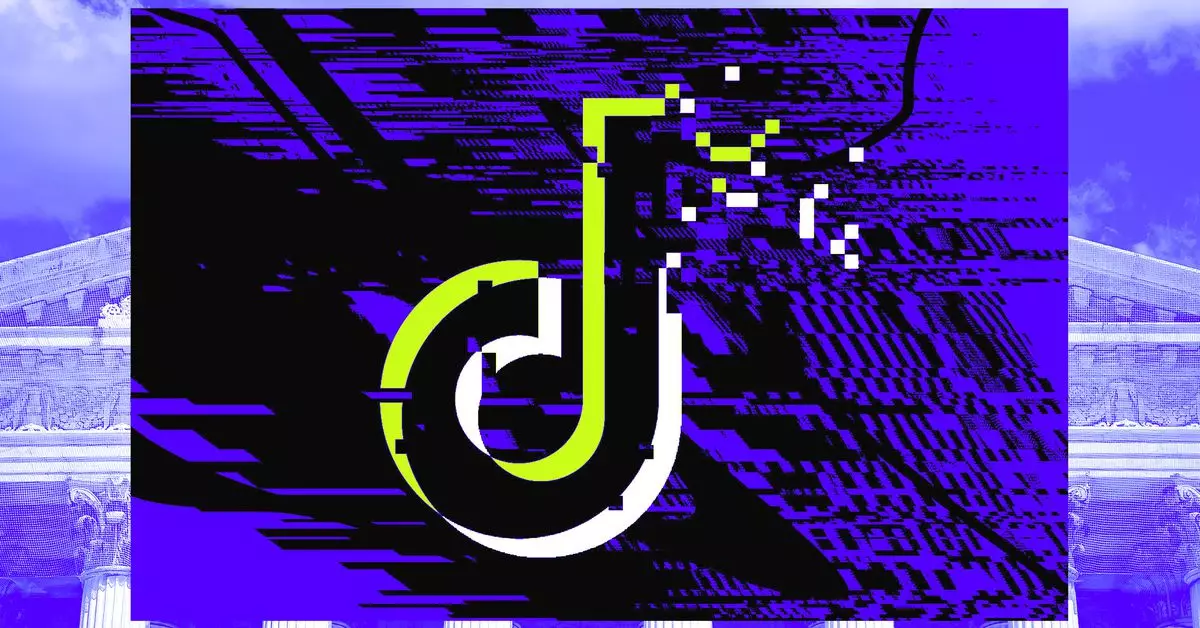The saga of TikTok, a social media platform owned by Chinese company ByteDance, has taken another convoluted turn with recent developments concerning an executive order issued by former President Donald Trump. The order instructs the U.S. Department of Justice (DOJ) to halt enforcement of regulations that demand TikTok divest from its parent company or risk being banned in the United States. This decision raises numerous questions concerning legality, corporate strategy, and the broader implications for American engagement with technology originating from foreign entities.
From Trump’s initial ban of TikTok during his presidency to this new directive, the narrative has shifted dramatically. The new order suggests a strategic pivot, possibly intended to bolster TikTok’s presence in the U.S. market and provides a time cushion for the Biden administration to deliberate on the issue. This could indicate a growing recognition that a straightforward ban might not be the most prudent course of action, especially given the geopolitical and economic ramifications involved. Notably, Trump’s latest announcement runs counter to a bipartisan law enacted on January 19, which authorized heightened scrutiny and penalties for non-compliance.
While this executive order appears to offer TikTok a reprieve, it casts a long shadow over any potential legal ramifications. The timeline indicated in the directive offers up to 75 days where the Attorney General is instructed not to pursue penalties against American companies that continue to engage with TikTok. However, the legality of such an order comes into question, as it attempts to sidestep a law designed to address national security threats posed by foreign adversaries.
One of the critical issues surrounding Trump’s new executive order is its legal grounding. The law that established the penalties associated with foreign technology companies allows for some leeway but stipulates specific conditions under which extensions might be applicable. Trump’s decision to issue this order seems to sideline those stipulations altogether. Experts highlight substantial risks for companies caught in this precarious situation, potentially facing up to $850 billion in fines if they violate the existing law.
Even with Trump’s order providing a temporary halt on enforcement, the underlying legal framework remains active. Companies could still find themselves vulnerable five years down the line if they are deemed to have engaged in non-compliance during this interim period. This creates a chilling effect where corporations may decide the risk of litigation outweighs the potential benefit of resuming operations with TikTok.
In a climate of uncertainty, American companies, including tech giants like Apple and Google, are pressed to make difficult strategic decisions. They must weigh the economic implications of re-engaging with a platform that commands a significant user base against the threat of escalating penalties for doing so. On one hand, collaboration with TikTok might facilitate capitalizing on the platform’s advertising potential; on the other hand, the fear of fines and legal repercussions presents a daunting barrier.
Trump’s statement about a potential “joint venture” where the U.S. government would own 50% of TikTok adds another layer of confusion. How such a joint venture would function remains unclear, further complicating the corporate landscape for companies considering re-partnership with TikTok. Without concrete details, businesses face operational and reputational risks in pursuing any renewed collaboration under such ambiguous auspices.
The Road Ahead
Moving forward, the trajectory of TikTok in the U.S. will depend largely on the Biden administration’s stance and the legal and regulatory frameworks it chooses to uphold. While Trump’s executive order may temporarily alleviate some pressures on TikTok, the wider landscape of foreign technology engagement will demand careful navigation.
The intersection between national security concerns and corporate interests continues to evolve, reinforcing the notion that the governance of technology transcends simple binary decisions such as “ban” or “allow.” Instead, it invites an exploration of frameworks that could enable a balanced approach, ensuring both security and innovation flourish in an increasingly interconnected world. The coming weeks will undoubtedly reveal further insights into how this saga unfolds, but for now, it remains a prime example of how executive decision-making can engage with complex legal realities.

